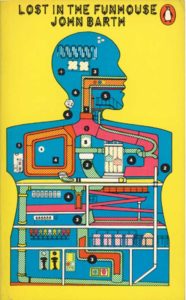say something say something
cram my mouth with crumpled words
stuff my chest cavity with paper
 anything to fill me up give me shape
anything to fill me up give me shape
ever since I pulled the gods
from my belly my hide’s begun to sag
say something say something
any answer as long as it is broad
enough to fill the gap between stars
strong enough to bridge the space
between a nucleus and electron
an open question is the mouth of death
any answer to stop the asking
